Israel’s warning to Iran after retaliatory missile strikes
The Israeli military warned Iran it would “pay a heavy price” if it began a new round of escalation after Israel carried out air strikes in Iran.
World
Don't miss out on the headlines from World. Followed categories will be added to My News.
The Israeli military warned Iran it would “pay a heavy price” if it began a new round of escalation after Israel carried out air strikes in Iran.
The Israeli military said Saturday it had concluded its air attack on Iran, saying it hit the Islamic republic’s missile manufacturing facilities, surface-to-air missile arrays and other aerial capabilities in several regions.
“Based on intelligence, IAF (air force) aircraft struck missile manufacturing facilities used to produce the missiles that Iran fired at the State of Israel over the last year,” the military said in a statement.
“Simultaneously, the IDF (military) struck surface-to-air missile arrays and additional Iranian aerial capabilities, that were intended to restrict Israel’s aerial freedom of operation in Iran.”
The Israeli military said its strikes had given it more freedom to operate in skies over Iran.
“Now, the state of Israel has wider freedom of action in the air over Iran as well,” military spokesman Rear Admiral Daniel Hagari said.
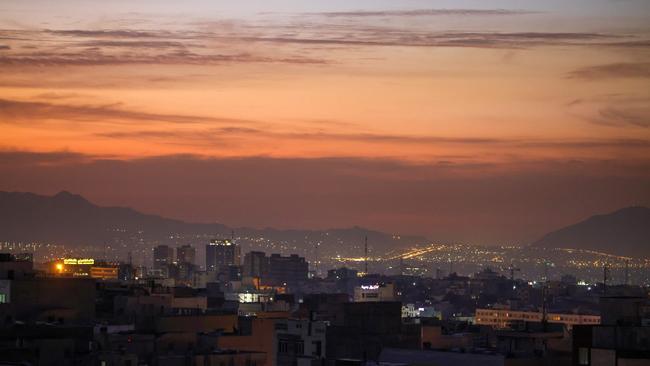
It said the strike was conducted in response to recent Iranian attacks against Israel and its citizens.
“Our planes have returned safely ... The retaliatory strike has been completed and the mission was fulfilled,” the military added.
IDF military spokesman Daniel Hagari added: “If the regime in Iran were to make the mistake of beginning a new round of escalation, we will be obligated to respond. Our message is clear: All those who threaten the State of Israel and seek to drag the region into a wider escalation will pay a heavy price.”
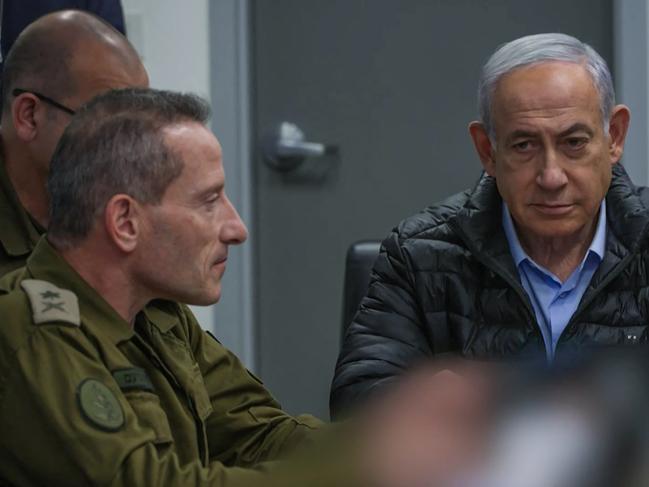
The US National Security Council has said the Israeli strikes on military targets in Iran were “an exercise of self-defense” following Tehran’s ballistic missile attack earlier this month.
White House security spokesman Sean Savett said the United States was informed ahead of the retaliatory attack by Israel.
White House officials said in separate statements later that President Joe Biden and Vice President Kamala Harris had been briefed on the strikes and would continue to receive updates from their national security teams.
The United States has urged Iran to stop attacking Israel to break the cycle of violence.
“We urge Iran to cease its attacks on Israel so that this cycle of fighting can end without further escalation,” Savett told reporters.
Iran is prepared to respond to any Israeli “aggression,” Iran’s semi-official Tasnim news agency said.
“There is no doubt that Israel will face a proportional reaction for any action it takes,” Tasnim quotes its sources as saying.
Israel’s strikes led to several loud explosions in Tehran and the nearby city of Karaj.
In a statement, the IDF said it was carrying out “precise strikes” on Iranian military targets, in response to “months of continuous attacks from the regime in Iran against the State of Israel.”
“The regime in Iran and its proxies in the region have been relentlessly attacking Israel since October 7th – on seven fronts – including direct attacks from Iranian soil,” the military said.
The Israel Defense Force has confirmed the start of Offensive Operations against Iran. pic.twitter.com/g5vtzRtVM9
— OSINTdefender (@sentdefender) October 25, 2024
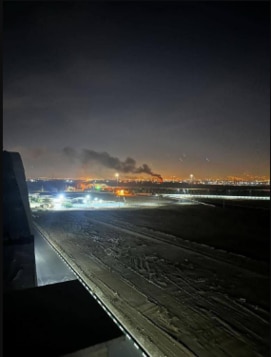
The retaliation comes as Iran prepares to go to war with Israel after Supreme Leader Ayatollah Khamenei ordered the military to devise multiple plans in the event of an attack from Jerusalem, according to reports.
The severity of Iran’s response would depend on what or who Israel targeted, Iranian officials told The New York Times.
Any attack on oil or nuclear sites, or on a senior official would be met with major retaliation, including a barrage of up to 1000 missiles, the NYT reported.
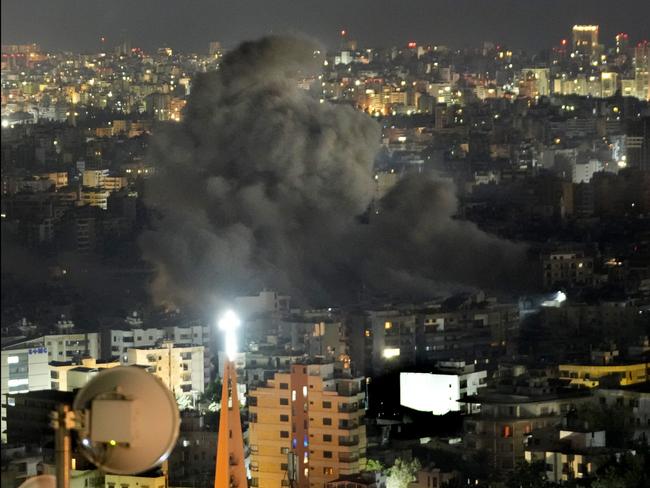
Other responses could include escalated attacks by Iranian proxy militant groups and disrupting the flow of global energy supplies and shipping moving through the Persian Gulf and the Strait of Hormuz.
However, Iran might do nothing if Israel’s attacks are limited to low level military bases, the paper said.
It came as Israel was forced to deny reports that it delayed its retaliatory strike against Iran because of a leak of potentially sensitive military information from the United States last week.
The leak of a top secret document, published on a pro-Iranian Telegram channel last Friday, revealed Israel’s plans to respond to Iran’s missile barrage earlier this month.
The document revealed Israel’s military sites and assets, making reference to two Israeli air-launched ballistic missiles.
FOLLOW UPDATES BELOW:
JOURNALISTS KILLED IN ISRAELI AIR STRIKES
Lebanon said an Israeli strike on a residence housing media workers killed two journalists and a broadcast engineer on Friday, in an attack the minister of information branded a “war crime”.
Pro-Iran Lebanese television channel Al Mayadeen said a cameraman and broadcast engineer were killed in the strike on a journalists’ residence in Hasbaya, south Lebanon.
Another TV outlet, Al-Manar, run by Hezbollah, said one of its video journalists was also killed in the strike on a bungalow located in a resort that several media organisations covering the Israel-Hezbollah war had rented out.
“The Israeli enemy waited for the journalists’ nighttime break to betray them in their sleep,” Information Minister Ziad Makary said in a post on X.
“This is an assassination, after monitoring and tracking, with prior planning and design, as there were 18 journalists there representing seven media institutions. This is a war crime.”
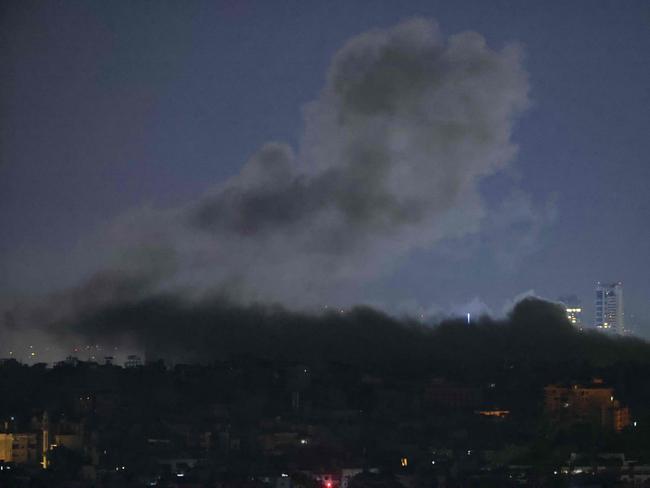
Journalists from other media organisations, including Lebanese broadcaster Al-Jadeed, Sky News Arabic and Al Jazeera English, were also resting nearby when the strike hit overnight.
Israel has not commented on the strike, which, according to Lebanon’s health ministry, also wounded three other people.
The area where the journalists were located is outside Hezbollah’s traditional strongholds.
Lebanon’s prime minister Najib Mikati condemned the attack on Friday.
In a statement, he said “the new Israeli aggression targeting journalists” was among the “war crimes committed by the Israeli enemy”, adding that the attack was “deliberate” and “aims to terrorise the media to cover up crimes and destruction”.
DOZENS KILLED IN ISRAELI GAZA STRIKES
In Gaza, the civil defence agency said Israeli air strikes hit two homes at dawn on Friday in Khan Yunis, the Palestinian territory’s main southern city.
According to agency spokesman Mahmud Bassal, 14 were killed in a strike that hit the home of the Al-Fara family, and another six were killed in a separate raid.
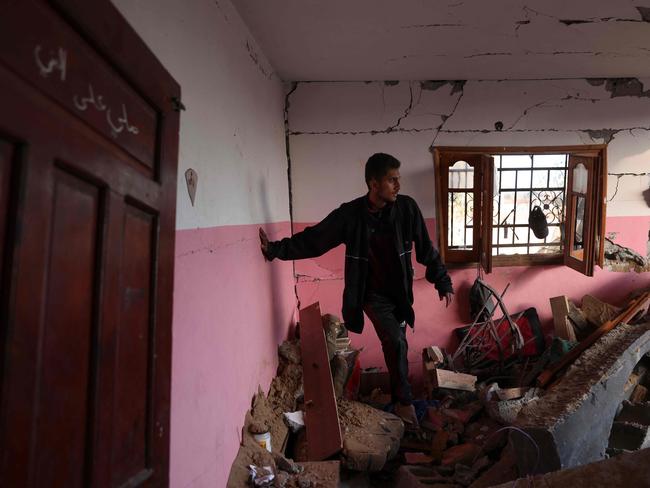
In north Gaza, the Israeli military on Friday said dozens of militants were killed around Jabalia, in north Gaza, over the previous day.
Israel launched a major assault on north Gaza earlier this month, saying it aims to prevent Hamas from regrouping there.
The civil defence’s Bassal said “more than 770 people have been killed” in northern Gaza in the 19 days since the Israeli operation began there.
‘ISRAEL MUST COMMIT TO A CEASEFIRE’: HAMAS OFFICIAL
Multiple bids to stop the war have failed, though Israel’s key backer the United States has voiced hope that the killing of Hamas leader Yahya Sinwar last week could serve as an opening for a deal.
A senior Hamas official told AFP that a delegation from the group’s Doha-based leadership discussed “ideas and proposals” related to a Gaza truce with Egyptian officials in Cairo on Thursday.
“Hamas has expressed readiness to stop the fighting, but Israel must commit to a ceasefire, withdraw from the Gaza Strip, allow the return of displaced people, agree to a serious prisoner exchange deal and allow the entry of humanitarian aid into Gaza,” the official said.
Israeli Prime Minister Benjamin Netanyahu said he welcomed mediator Egypt’s readiness to reach a deal “for the release of the hostages” held by militants in Gaza.
Netanyahu directed the head of Israel’s Mossad spy agency to leave for Qatar on Sunday to “advance a series of initiatives that are on the agenda”, his office said.
Qatar, Egypt and the United States have long tried to mediate a ceasefire in the Gaza war.
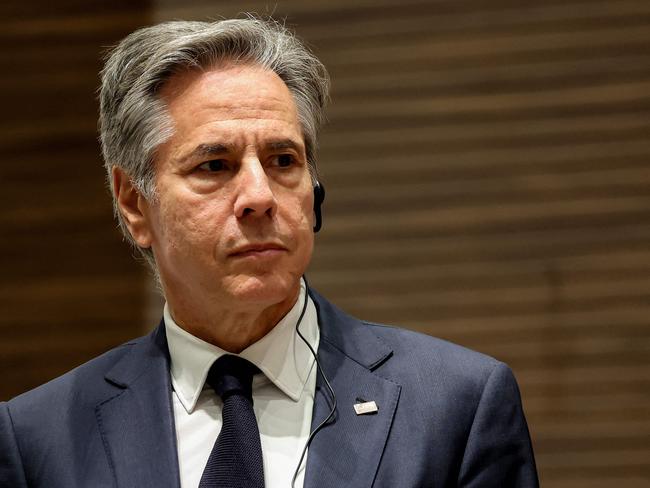
TRUCE MEDIATORS TO EXPLORE NEW OPTIONS: BLINKEN
US Secretary of State Antony Blinken met with Qatar’s leaders in Doha on Thursday on his 11th trip to the region since the start of the Gaza war.
During the trip, which comes less than two weeks before US elections, Blinken said mediators would explore new options.
Israeli and US officials as well as some analysts said Sinwar had been a key obstacle to a deal which would release the hostages still held in Gaza.
Critics of Netanyahu, too, have regularly accused him of obstructing truce and hostage release negotiations.
An Israeli group representing families of hostages called on Netanyahu and Hamas to secure an agreement to free the remaining captives.
“Time is running out,” the Hostages and Missing Families Forum said.
On Thursday, hostage supporters marched outside Netanyahu’s Jerusalem residence demanding action for their release.
Blinken landed late Thursday in London, where a US official said he would meet on Friday with the foreign ministers of Jordan and the United Arab Emirates.




